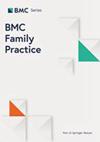询问全科医生--对全科医生查房和咨询服务的评估
IF 3.2
3区 医学
Q1 MEDICINE, GENERAL & INTERNAL
引用次数: 0
摘要
入院的血管外科病人往往患有多种疾病。在遇到有关慢性病的问题时,他们会向不同的专科医生咨询,这就导致了治疗医生数量的增加,并有可能产生相互矛盾的建议。全科医生(GP)的意见可以最大限度地减少这一问题。然而,全科医生会就哪些医疗问题接受咨询,以及专家们是否会认为全科医生定期参与查房会有所帮助,这些都是未知数。本研究旨在建立和描述全科医生查房服务(GP-RS),评估全科医生查房服务在三级医院是否可行,是否对专科医生有益,并探讨全科医生会诊的适应症。全科医生查房服务是一个试点项目。2020年6月至12月期间,汉堡大学医疗中心-埃彭多夫分校(UKE)全科和初级保健部的一名全科医生每周一次参加血管外科团队(UKE)的查房。该项目采用多种方法进行评估:对参加过 GP-RS(G1)或未参加过 GP-RS(G2)的血管外科医师、通常在血管外科进行会诊的其他专家(G3)以及参与的全科医生(G4)进行了半结构化定性访谈。访谈采用库卡茨定性内容分析法进行分析。此外,还对两组定量数据进行了描述性分析,重点关注全科医生会诊的原因:一组数据来自全科医生会诊系统,另一组数据来自成熟的、传统的 "按需 "全科医生会诊服务。共进行了 15 次访谈。医生们认为全科医生诊疗服务是有益的,尤其是对手术病人(G1-3)。优化用药、避免不必要的会诊以及对正在接受培训的医生的学习效应(G1-4)被认为是其他益处。批评的声音认为,全科医生远程会诊系统增加了工作量(G1、G3),而且有些会诊请求对全科医生来说过于具体(G1-3)。根据 367 名血管外科患者和 80 次常规全科医生会诊的数据,全科医生会诊的最常见原因是心血管疾病,包括高血压和糖尿病。全科医生会诊服务在三级医院是可行的。需要对全科医生共同管理模式进行更密切的跟踪研究,以客观地改善患者护理并减少总的会诊次数。不适用。本文章由计算机程序翻译,如有差异,请以英文原文为准。
Asking the generalist – evaluation of a General Practice rounding and consult service
Vascular surgery patients admitted to the hospital are often multimorbid. In case of questions regarding chronic medical problems different specialties are consulted, which leads to a high number of treating physicians and possibly contradicting recommendations. The General Practitioner´s (GP) view could minimize this problem. However, it is unknown for which medical problems a GP would be consulted and if regular GP-involvement during rounds would be considered helpful by the specialists. The aim of this study was to establish and describe a General Practice rounding service (GP-RS), to evaluate if the GP-RS is doable in a tertiary care hospital and beneficial to the specialists and to explore GP-consult indications. The GP-RS was established as a pilot project. Between June-December 2020, a board-certified GP from the Department of General Practice and Primary Care, University Medical Center Hamburg-Eppendorf (UKE) joined the vascular surgery team (UKE) once-weekly on rounds. The project was evaluated using a multi-methods approach: semi-structured qualitative interviews were conducted with vascular surgery physicians that had either participated in the GP-RS (G1), had not participated (G2), other specialists usually conducting consults on the vascular surgery floor (G3) and with the involved GP (G4). Interviews were analyzed using Kuckartz’ qualitative content analysis. In addition, two sets of quantitative data were descriptively analyzed focusing on the reasons for a GP-consult: one set from the GP-RS and one from an established, conventional “as needed” GP-consult service. 15 interviews were conducted. Physicians perceived the GP-RS as beneficial, especially for surgical patients (G1-3). Optimizing medication, avoiding unnecessary consults and a learning effect for physicians in training (G1-4) were named as other benefits. Critical voices saw an increased workload through the GP-RS (G1, G3) and some consult requests as too specific for a GP (G1-3). Based on data from 367 vascular surgery patients and 80 conventional GP-consults, the most common reasons for a GP-consult were cardiovascular diseases including hypertension and diabetes. A GP-RS is doable in a tertiary care hospital. Studies of GP co-management model with closer follow ups would be needed to objectively improve patient care and reduce the overall number of consults. Not applicable.
求助全文
通过发布文献求助,成功后即可免费获取论文全文。
去求助
来源期刊

BMC Family Practice
医学-医学:内科
CiteScore
3.20
自引率
0.00%
发文量
0
审稿时长
4-8 weeks
期刊介绍:
BMC Family Practice is an open access, peer-reviewed journal that considers articles on all aspects of primary health care research. The journal has a special focus on clinical decision making and management, continuing professional education, service utilization, needs and demand, and the organization and delivery of primary care and care in the community.
 求助内容:
求助内容: 应助结果提醒方式:
应助结果提醒方式:


